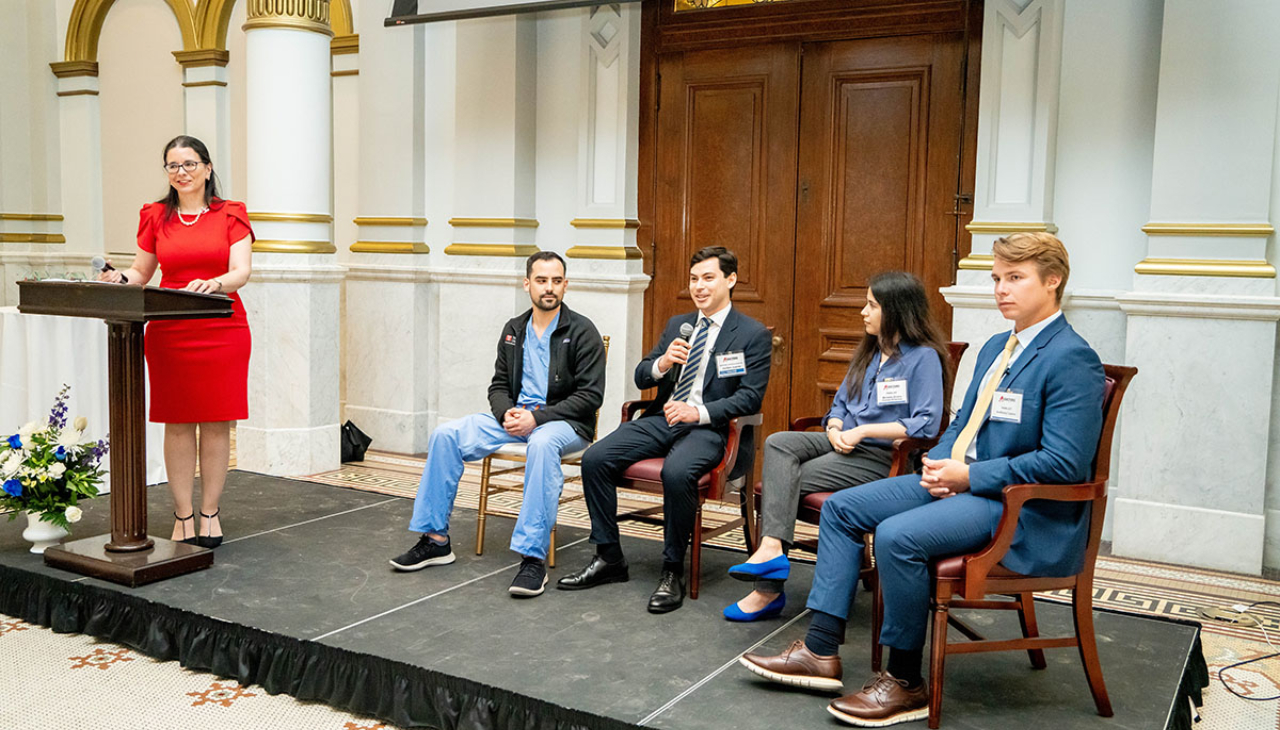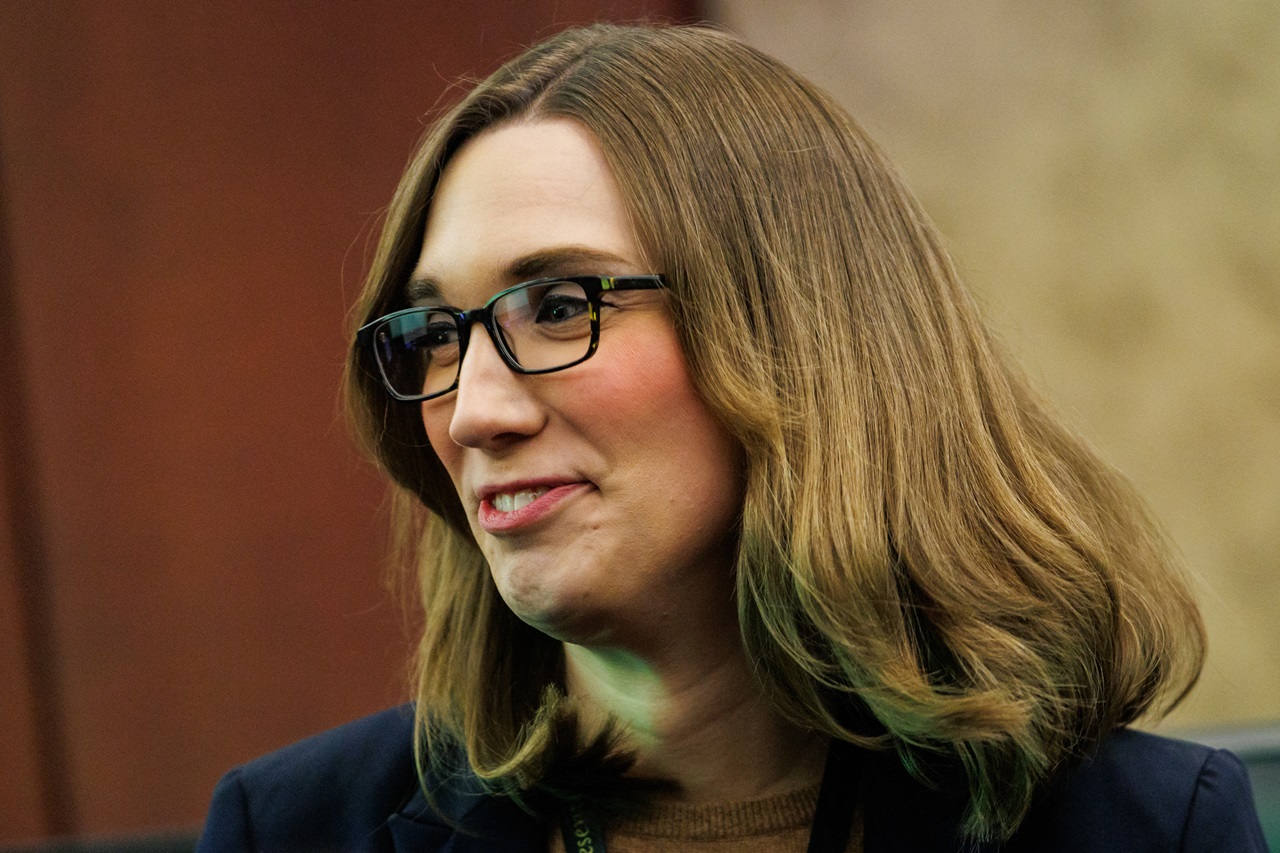
Hispanic medical students defying the odds
As part of the 2023 AL DÍA Top Doctors Forum, a panel discussion took a deep dive into the likely future of the medical profession.
Moderated by the event’s board chair, Dr. Johanna Vidal-Phelan, the panel featured four Temple University medical students — Tomas Prudencio, a third-year medical student at the Lewis Katz School of Medicine; Jordan Juarez, co-director of the Latino Medical Student Association; Michelle Oriana Gomez-Guevara, community service chair of the Latino Medical Student Association; and Anthony Castro, a rising second-year medical student at the Katz School of Medicine.
The discussion featured a number of talking points, ranging from the challenges of medical school as a Hispanic student, to ways to improve the medical school pieces, to pieces of advice for the next generation of students coming up.
For each student, finding their community has been among the most critical ways to successfully navigate medical school and ultimately, the medical field.
For Castro, going from studying pre-med at the University of Miami, where there was a more robust Latin American community, to Temple, presented a bit of a culture shock.
However, while navigating often feeling alone and like an outlier, finding his community — however small — helped ease that challenge.
“Within an academic setting, representation matters a lot. That’s why it’s great to see this community come together,” added Juarez.
To this end, when navigating a predominantly non-Hispanic environment, there can often be a balancing act between embracing your cultural identity and assimilating into said environment.
Prudencio can recall one day while going through his rotations, a non-English-speaking patient came in during an emergency situation.
He was the only member of the medical care team who spoke the language of the patient. While he is grateful he was there during that situation, Juarez can’t help but think what might have happened if he weren’t.
“It made me come to tears to think about the fact that if I hadn’t been there… it would’ve been so scary. It would’ve been terrifying,” Prudencio said.
“I think it’s important that we work with our colleagues — not only Hispanics, but in various cultures — to bring attention to the fact that we can’t desensitize these encounters,” he added.
Support goes far beyond the student base. Medical institutions, faculty, and organizations like the Latino Medical Student Association all have a key role to play in supporting underrepresented medical students throughout their journey.
CONTENIDO RELACIONADO
In Juarez’s words, support from all of them “allows you to flourish,” he said.
Overall, being a medical student can be grueling and stressful.
One of the key pieces of advice Gomez-Guevara would give to others who are looking to navigate medical school is to also practice self-care.
“It’s very important to take it slow and take some time to rest,” she said.
It is also just as important to seek mentorship and networking opportunities.
“I think that’s something that can really benefit students,” noted Castro.
To close the panel, Dr. Vidal-Phelan offered her own pieces of advice.
“Use your voice,” she underscored. “Your voice matters, your experience matters, what you have to say matters. Your culture, your heritage, and language matter.”










DEJE UN COMENTARIO:
¡Únete a la discusión! Deja un comentario.